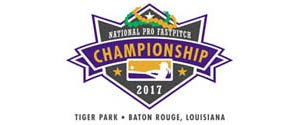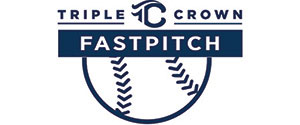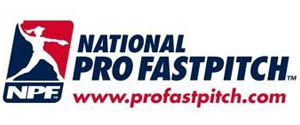http://espn.go.com/espnw/news-commentar ... ning-homer
Chelsea Oglevie woke up Saturday morning with one more start to make, one more opportunity to step in the pitching circle and do what she loved to do and what she had done as many days as not since she was 6 years old and someone put a catcher in front of her. So perhaps it shouldn't be surprising that she also woke up sick to her stomach.
Whatever the day held, she knew her world was about to change. She still didn't know the half of it.
Andy Meng/Florida Southern AthleticsFlorida Southern's Chelsea Oglevie said even if she could, she wouldn't take back the pitch on which she served up the home run.
The butterflies were gone by the time she took the field for the first game of Florida Southern College's season-ending doubleheader against Eckerd College. There the senior for the NCAA Division II school in Lakeland, Fla., was, in her element. She held Eckerd scoreless for an inning, then another and another. Five in all.
Even after she allowed one run in the top of the sixth, she was one out from walking off the field for the final time with a win when Eckerd's Kara Oberer walked to the plate. Or, more precisely, when Oberer hobbled toward the batter's box.
In a moment of pure competitive will, the injured Oberer came off the bench to hit a three-run home run that put Eckerd in front 4-2.
In a moment of pure sportsmanship, six years to the day after a similar scene unfolded in a Division II game between Central Washington and Western Oregon, Oglevie helped carry her stricken foe around the bases.
The final pitch of Oglevie's career turned out to be a prelude to the moment that will define it more than any win could.
"I feel like it's a life-changing experience to realize that people are willing to go out of their way for you," Oberer said. "I think it shows people all over that there is still greatness in humanity. People just want to help you out either way."
Viewed as a line on the schedule, one of hundreds of college softball games played on a late April weekend, there was nothing much at stake in Saturday's doubleheader. Neither team had any chance to play postseason softball and the games were played in front of the standard Division II crowd of, as Eckerd coach Josh Beauregard put it, moms, dads, boyfriends and grandparents.
But in addition to the personal motivation of seniors on both sides playing their final games, Eckerd had a chance to clinch its first winning season since it started its program in 1985. All it needed was one win in three games against Florida Southern, but its first chance slipped away in a 15-inning loss Friday that took more than four hours to play and left all involved short on sleep.
Florida Southern AthleticsInfielder Leah Pemberton, the other Florida Southern player to help Eckerd's Kara Oberer, once broke her leg when Oberer took her out at second base.
The win looked like it would be even harder to come by when Oberer, Eckerd's starting shortstop and best hitter, dove to try and keep a ball hit up the middle from reaching the outfield early in Saturday's first game. Her knee hit the lip that separates infield from outfield and she felt her leg lock. When she fouled a ball off her face earlier this season, she said through a mess of blood that she wanted to stay in the game. When she hit her hand on an opponent's helmet with such force that her fingers are still partly numb weeks later, she kept playing shortstop.
She stayed in the game for another couple of pitches Saturday, then ceded to the reality that she couldn't continue, couldn't move the leg at all.
But with two outs and runners on first and second in the top of the seventh, Oberer answered in the affirmative when her coach asked her if she could hit and a trainer concurred (softball's re-entry rule allowed Beauregard the wiggle room to keep her as an option). She told him she wasn't sure she could run and she was going to have to hit off her front leg, but she knew that a hit of any kind would almost certainly tie the game. All she had to do was get to first base.
Oglevie tried to jam Oberer inside and then move the ball outside. But with a 2-2 count, a rise ball targeted for up and away caught too much of the strike zone.
The ball sailed over the left-field wall. Eckerd had its lead, and after three outs in the bottom of the inning, the guarantee of a winning season.
"The hit itself, taking into account she was injured, it's one of those sports analogies where big-time players make big-time plays in big-time games," Beauregard said. "There's something about them. Some people fold under the pressure and some people rise to it. When I think of Kara and that moment I just think there was no bigger hit in the history of our program."
Eckerd's coach was momentarily distracted as he waved home the runners already on base, unsure at first if the ball would clear the fence. Oglevie and second baseman Leah Pemberton also turned to watch the ball vanish. It was a few beats until any of them noticed that Oberer, now hopping on one leg and in tears, was only then slowly and painfully approaching first base.
When Central Washington's Mallory Holtman volunteered to carry Western Oregon's Sara Tucholsky to home plate after the latter tore her ACL on her trip around the bases in 2008, there was some confusion about the applicable rule. It was initially believed that the home run would be officially scored a single if the batter couldn't complete the trip.
In fact, there is an NCAA rule that allows for a dead-ball substitution if an injured player is unable to proceed to an awarded base. That would have applied in this instance, too, giving Oberer credit for the home run, but it never came into play.
Blake WolfSara Tucholsky got a lift from Central Washington's Liz Wallace, left, and Mallory Holtman in 2008.
Before the conversation could begin between umpires and coaches, Oglevie and Pemberton put down their gloves and picked up the injured player.
All three players involved said they were aware of the story that unfolded six years earlier but that it didn't enter their minds in the moment Saturday, at least not consciously. Although having seen or read about a similar situation may have informed the thought process on some level, the motivation was more basic. Some things are allowed by rule. Some things you do because it's right.
"Just realizing what an incredible hit that was," Oglevie said of her motivation. "I don't care who you are, you deserve to go around the bases and get your home run. She deserved it. I threw a pitch that she hit hard, and she deserved it."
The other person who came to Oberer's aid was no less unlikely to find in that role. While both were still in high school in Florida, Pemberton and Oberer squared off in a travel ball tournament. When it came time to try and break up a double play, Oberer slid in hard. Pemberton ended up with a broken leg that kept her off the field for months.
It was just a moment in time -- Oberer told Pemberton she didn't even recall the play, unaware of the extent of the injury. But it would have been easy to hold a grudge, easier still given the circumstances Saturday.
"We've played some really nasty teams in our conference," Pemberton said. "And you never really want -- especially if you're losing -- you don't want to like the team that beat you. But it just made me realize that it's not really about winning or losing. It was just cool that I was able to help her get around the bases and help her succeed with her home run.
"It just made me feel good inside."
Sports make that which divides us easier to discern than it sometimes is in the real world. Players literally wear the allegiances on their sleeves -- and across their chests. Facing each other from dugouts on either base line, they really are cast on opposite sides. But sports are also where individuals have both the opportunity to succeed, and accountability for their actions if they fall short.
And what separates groups sometimes seems trivial between individuals.
HAPPY ANNIVERSARY
Saturday was a significant day for Central Washington for reasons beyond the six-year anniversary of a memorable act of sportsmanship. Named as the successor to longtime coach Gary Frederick at her alma mater just three years after her time in the spotlight and graduation, Mallory Holtman-Fletcher picked up career win No. 100 Saturday against Northwest Nazarene University.
Her team is one of four to qualify for this week's Great Northwest Athletic Conference tournament, which it will host in Richland, Wash., not far from the school's Ellensburg campus. More on Holtman-Fletcher.
It was as an opponent on a softball field that Oglevie threw the pitch. It was as a person humbled by the softball field that she reached out a hand to help.
From just about the first time she tried to get the ball to home plate as a kid, Oglevie loved the control she had as a pitcher. She set the game in motion, her energy set the tone for teammates arrayed around her. It didn't hurt that she was one of those kids who was always better than the other kids. She recalled throwing her first perfect game at 9, and generally dominated opponents.
It wasn't until she got to the the State College of Florida, a two-year junior college, that she realized there was a universe in which she wasn't special. She was just another pitcher.
"Oh man, I got beat up so many times," Oglevie said of her freshman season. "I'm talking like 10-run games off me and all this kind of stuff. But in the end I ended up beating some of the highest nationally ranked teams as a freshman. It was one of those things where I got beat up a whole bunch, and I realized that I'm definitely not all that. But that just made me stronger in the end because I realized I have to make my ball move and that I wasn't going to overpower anybody anymore."
She persevered and became Florida Southern's ace, just as Oberer persevered through the pain Saturday. Competition and compassion are not mutually exclusive.
Although the exact nature of the injury remained unclear Sunday, Oberer will presumably be back on the field and no worse for wear -- by her standards, at least -- next season and the season after that. The same is true for Pemberton, also a sophomore.
That isn't the case for Oglevie. The home run was the final pitch she ever threw. She came out of the game after helping her opponent to home plate.
A standout student, she will enter the MBA program at South Florida this August. But the tears in her eyes when the three-person caravan reached home plate were the product of the emotion of both the moment and the future.
"I'm just really proud of myself for taking something that I loved as far as I could go," Oglevie said. "And not giving up on myself even though there were games when I never wanted to pick up a ball again because I was so upset."
So would she take the pitch back? Would she try one more time in hopes of getting a few more inches on the rise and a win?
"I wouldn't," she said emphatically. "She deserved that home run right when she deserved it. I think that it all worked out to where we got the momentum going into the second game to take that game [FSC won 2-1]. Even though it was an incredible home run and it looks terrible for me as a pitcher, I wouldn't change it for the world. It all happened for a reason."
Share this storyTweetespnW.com
College Softball
Six years later, integrity wins again
2 posts
• Page 1 of 1
-

jonriv - Posts: 4875
- Joined: Fri Feb 20, 2009 6:01 am
- Location: Connecticut
Thank you so much for sharing this. Saw it on ESPN top 10 last night. Great to read all the history behind the girls involved. For the love of the game...
- softball123
- Premium Member

- Posts: 27
- Joined: Mon Jul 16, 2012 8:08 am
2 posts
• Page 1 of 1




























